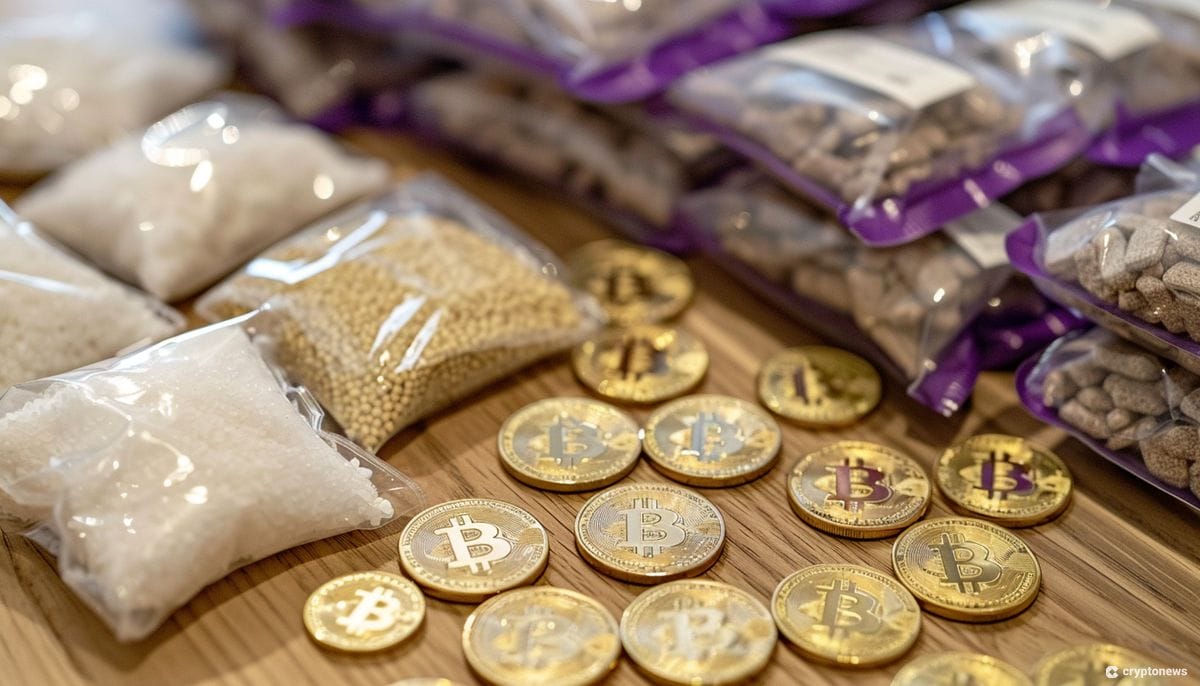In a recent development in South Korea, the police have arrested 34 individuals in connection with a suspected crypto-powered drugs smuggling ring. The arrests were made following a raid where authorities seized 90,000 doses of drugs, including methamphetamine, synthetic marijuana, and ketamine. It was revealed that the ring used Vietnam-based smugglers to hide the drugs in cosmetics products, which were then sent to South Korea through international courier services. Police stated that nine people, including two South Korean ringleaders, have been remanded in custody, while 25 others have been charged with related crimes. The ring is said to have been active from August 2023 to April 2024, and they reportedly sold the narcotics online to crypto-paying buyers using Telegram as a communications tool.
According to reports, Korean-language Telegram channels have become a prominent platform for drug buyers and dealers, with the police emphasizing their efforts to combat cryptocurrency-related crimes and fraud cases. In response to the surge in such activities, South Korea is working on establishing a permanent virtual asset investigative unit to tackle the issue effectively. The raids carried out by the Chungbuk Police Agency’s criminal task force’s drug crime investigation unit uncovered significant quantities of drugs hidden in a mountainside, including synthetic marijuana solution, methamphetamine, and ketamine. The drugs were found buried under the ground in the countryside, with gang members dividing the synthetic marijuana into smaller units for sale through social media channels like Telegram, where buyers paid in cryptocurrency.
Police officials released photographs of cosmetics containers used to hide the drugs before being smuggled into South Korea from Vietnam. Authorities also seized funds totaling more than $245,000 during the raids, signaling ongoing investigations into the matter. The police suspect the involvement of overseas suppliers and other individuals in the drug smuggling ring, with all cases handed over to the prosecution service. The head of the unit called on the public to report any suspected instances of crypto-powered drug crime to investigative agencies. Last year, President Yoon Suk-yeol declared an “all-out war” on crypto-powered drug trafficking following a rise in youth drug-related crimes, indicating the government’s commitment to tackling the issue.
Overall, the recent arrests in South Korea highlight the growing trend of crypto-powered drug smuggling and the authorities’ efforts to combat such criminal activities. The use of cryptocurrency for illegal transactions poses challenges for law enforcement agencies, necessitating the implementation of stringent measures to prevent and prosecute offenders. The discovery of significant quantities of drugs hidden in a mountainside and the subsequent arrests underscore the complexity and extent of the issue. South Korea’s move to establish a permanent virtual asset investigative unit reflects a proactive approach to address cryptocurrency-related crimes and fraud cases effectively. With ongoing investigations and calls for public cooperation, law enforcement agencies aim to dismantle drug smuggling rings and apprehend all individuals involved in such illicit activities.










